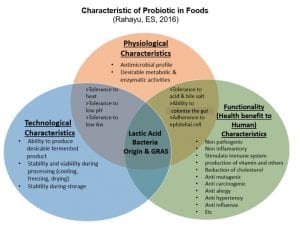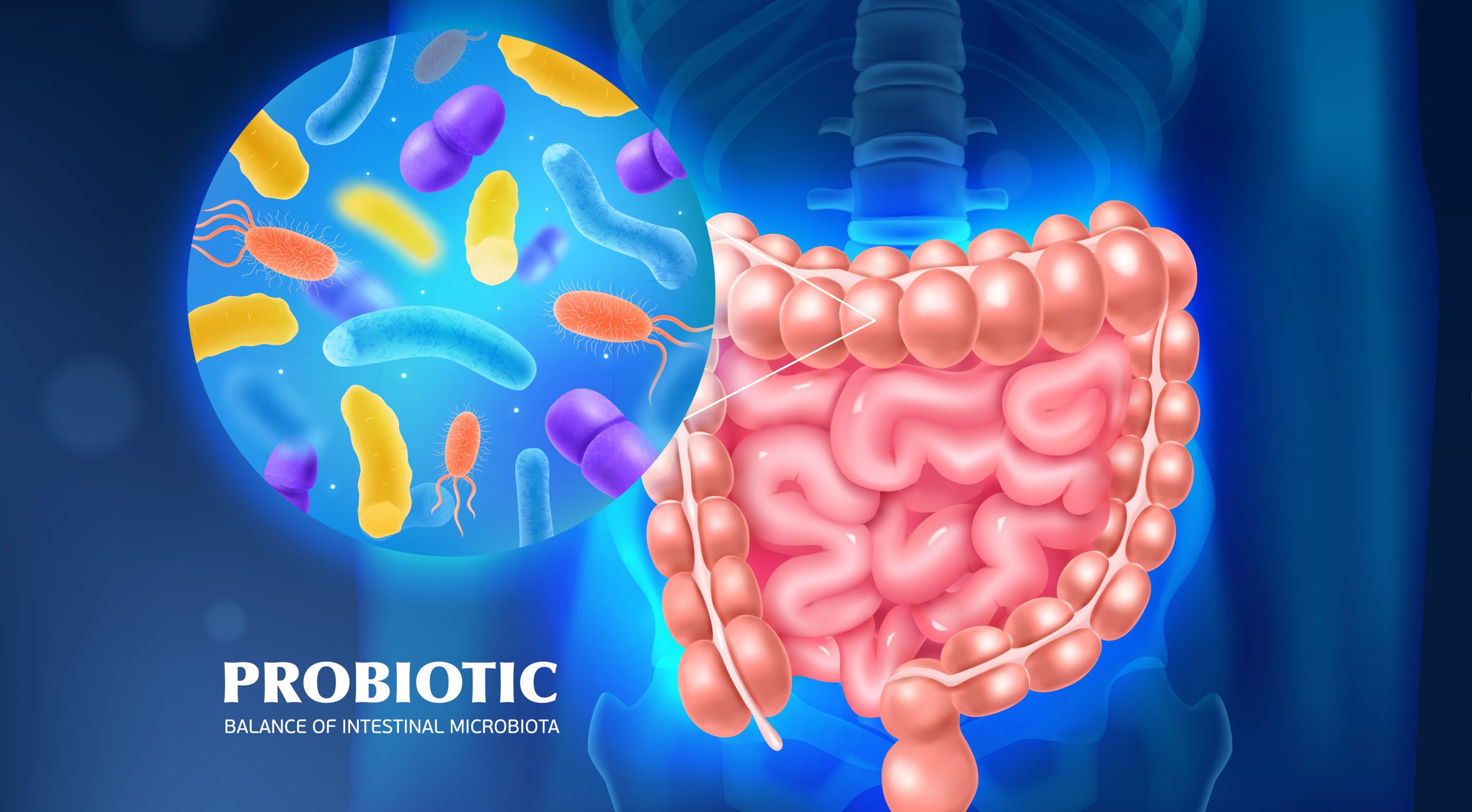In accordance with the existing definition that probiotics are microorganisms that are consumed in sufficient quantities living conditions and are able to multiply in the human digestive tract and bring health benefits (FAO/WHO, 2002). So the main requirement for probiotic bacteria is to have the ability to stay alive while passing through the stomach, digestive tract with various enzymatic activities, eventually heading to the colon and developing and bringing benefits to the health of the body. The ability to reproduce in the colon can be tested by the presence of probiotic bacteria in the feces after the subject has consumed these bacteria (Utami et al 2015 and Rahayu et al 2016).
The test for probiotic strains in feces is a common test, while to differentiate between probiotic bacteria and other bacteria which are thousands of times more numerous, a special selective media is required for the related probiotic strains. Tests on growing media are used to ensure that the probiotic strain survives and thrives in the gut, whose presence is reflected in the feces. Furthermore, to ensure that the strains contained in the feces are actually the probiotic strains being consumed, further DNA-based molecular tests and PCR tools can be carried out. Of course the ability to grow in the colon is not the only requirement that must be possessed by probiotic candidates, other aspects need to be considered as well.
Basically, the aspects that need to be considered in selecting probiotic bacteria for the industry are as follows:
(1) Origin of probiotic strains and their safety status. Most of the probiotic bacteria currently circulating in the market come from healthy human intestinal microbiota, but many are isolated from fermented foods. Selection of intestinal microbiota as probiotic origin, to obtain strains that can live and reproduce in the intestine. But fermented foods are also an ideal source because these foods have been consumed for generations for centuries and are proven safe. A clear identification of the strain used is also needed, not only based on the prototypic characteristics but also on the molecular basis (16srRNA). Probiotic strains must also be stored in an internationally reputable Culture Collection.
(2) Physiological aspects of probiotic strains. Probiotic strains must live and colonize the intestinal lumen so it is necessary to consider resistance to low pH and bile salts, including the ability to adhere to human epithelial cells. Another consideration is having anti-microorganism activity and the ability to produce certain enzymes or metabolites that can benefit the host body. Antagonistic power against specific enteric pathogens (in Indonesia, tropical pathogens need to be considered), the ability to assimilate serum cholesterol and deconjugate bile salts, produce amino acids, GABA, folic acid, vitamins, even serotonin, and has β-galactosidase, as well as enzymes Other enzymes are aspects that have been widely studied.
(3) Aspects of technology. Probiotic strains must have a high tolerance for various food processing processes. The strain must have a high tolerance to drought, high and low temperatures. Has high stability and viability during processing, freezing, drying, cooling, and storage. The strain to be used for the fermentation process must have the ability to produce fermented products that are acceptable to consumers. If probiotic strains are used as co-starters, they must also be able to interact with the main microorganisms in the fermentation process. The viability of the final product remains high according to the provisions for probiotic food 107-9 CFU/g product.
(4) Functional aspects. Probiotics must bring health benefits to the body, so it is necessary to consider the functional aspects derived from strains. Several functional aspects that can be obtained from probiotic strains are as immunomodulators, hypoallergenic, antihypertensive, anticancer, etc., according to the characteristics of each strain used. The aspects above are strain dependent or dependent on the probiotic strain itself. Every aspect studied must be proven through structured scientific research. Even the health benefits possessed by certain probiotic strains must be proven through clinical trials which are then published in reputable scientific journals.

The probiotic research team from the Faculty of Agricultural Technology and the Center for Food and Nutrition Studies, Gadjah Mada University, has conducted extensive research, starting from screening probiotics from various sources and studying aspects that need to be considered before these indigenous strains can enter the industrial world. It takes a long time and consistent activities to be able to bring research results to industry and markets.


